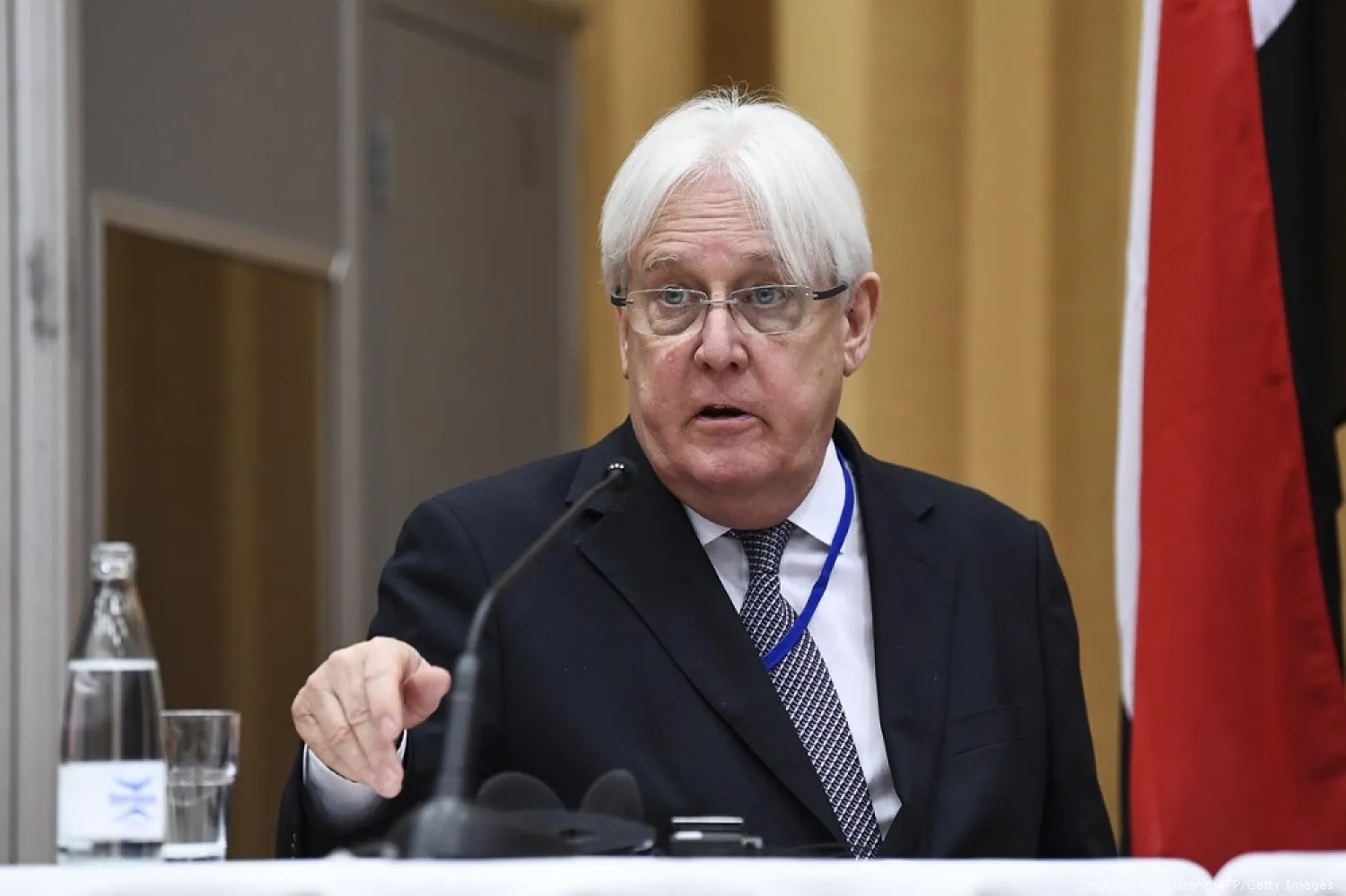United Nations special envoy for Yemen, Martin Griffiths, is expected to visit Riyadh next week to meet with the Yemeni government and discuss recent amendments on a Joint Declaration draft plan for a comprehensive solution between the legitimacy and Iran-backed Houthis militias, a diplomatic source said Thursday.
The envoy will work on discussing details of this draft plan with the government and to dissipate the legitimacy’s reservations, British Ambassador to Yemen Michael Aron told Asharq Al-Awsat, adding that this plan would be the last as the two warring sides are close to reaching a final solution on Yemen.
Griffiths will add the government’s views to this last draft plan because parties are close to reaching a final solution, Aron said.
Griffiths is leading UN-brokered negotiations between the Yemeni government and Houthis, to reach a Joint Declaration that will include a nationwide ceasefire, economic and humanitarian measures, and the resumption of the political process to comprehensively resolve the conflict in the country.
In mid-July, the legitimate government rejected proposals submitted by the envoy, saying they undermine the government’s sovereignty and are biased towards the Houthis.
Meanwhile, the people are awaiting the formation of a new government that can rebuild state institutions and provide security and services. The cabinet is also expected to merge all armed formations in the Defense and Interior Ministries.
Late last month, the Southern Transitional Council abandoned its declaration of self-rule and pledged to implement the Riyadh Agreement signed with the legitimate government.
The deal calls for appointing a governor and security director for Aden Governorate, and assigning the Yemeni Prime Minister to form a government of political competencies within 30 days.
“The new government has a priority of rebuilding state institutions and controlling resources,” presidential advisor Abdul-Aziz al-Maflahi told Asharq Al-Awsat.
He said Yemenis now have a chance to present themselves in a different manner because their agreement is supported by the regional and international community.
Maflahi praised the important role played by Saudi Arabia's Deputy Minister of Defense Prince Khalid bin Salman to accelerate the implementation of the Riyadh Agreement.
Advisor to the Yemeni President Dr. Mohammed al-Ameri told Asharq Al-Awsat that the new government must first normalize the situation in the liberated areas and remove any tensions left recently by the conflict.
“Security is the basis for everything. Without it, the government is incapable of completing its mission and enforcing the rule of state institutions in the liberated areas,” he said.









